인더스강-나일강-볼가강 건넌 ‘사막을 가로지르는 기차’, 신드영화 역사를 쓰다
*아시아엔 해외필진 기고문의 한글번역본과 원문을 함께 게재합니다.
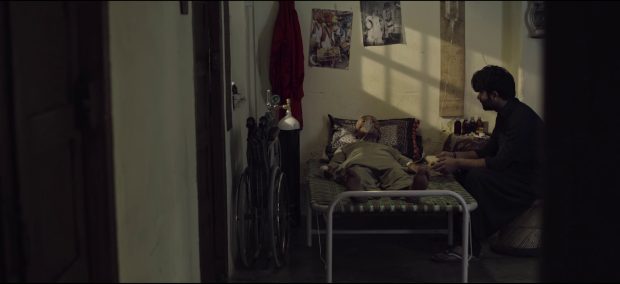
[아시아엔=글·사진 라훌 아이자즈 파키스탄 영화감독, 작가] 파키스탄 신드주 인더스강에서 출발한 기차가 이집트 나일강을 거쳐 최종목적지인 러시아 타타르스탄 공화국 카잔에 다다랐다. 2020년 초부터 2021년 말까지 걸어온 여정이다. 결실을 맺을 것이라 상상조차 하기 어려운 길이었다.
2019년 10월, 괴테-인스티튜트 파키스탄 영화인재단에 참여할 기회를 얻었다. 파키스탄과 아프가니스탄에서 15명의 영화 제작자들을 선발했는데 그 중 한 명이 필자였다.
필자는 지난 몇 년간 파키스탄과 한국에서 언론에 종사하고 영화를 비평했는데, 이번 기회를 계기로 영화제작에 전념하게 됐다. 사실 ‘열차’는 이미 떠날 준비를 마친 상태였다. 2020년 2월 타리크 라자와 나디르 후세인이 주연을 맡은 단편영화 ‘사막을 가로지르는 기차'(A Train Crosses the Desert)가 제작에 들어가며 첫 발을 내딛었다.
영화는 두 형제를 중심으로 전개된다. 불치병에 걸린 동생은 형에게 자신을 안락사 시켜달라고 부탁한다. 필자는 2018년 암으로 세상을 떠난 사촌을 떠올리며 스토리를 구상했다. 평생 머리 속을 맴돌았던 ‘삶과 죽음’이 가까웠던 이와의 이별을 계기로 더욱 더 와 닿았다. 우리의 우정에 경의를 표하고, 또 그가 겪었던 고통에 파고 들기 위해 안락사란 주제를 택했다. 삶과 죽음 사이에서 살아있지도, 죽어 있지도 않은 그 상황이 당사자와 사랑하는 주변인들에게 어떤 영향을 미쳤을까.
‘사막을 가로지르는 기차’라는 제목은 내게 행운처럼 찾아왔다. 이집트의 언론인이자 시인인 아시라프 아불-야지드 달리가 선물한 ‘침묵의 기억’을 읽는 도중 두 편의 시 ‘감옥’과 ‘사막을 가로지르는 기차’에서 영감을 떠올렸다. 시를 읽고 또 읽는 것은 말로 표현하기 힘든 경험이다. 예술은 어떤 단어나 해설로도 정의할 수 없기에, 언어로 논하기보단 직접 겪어봐야 한다.
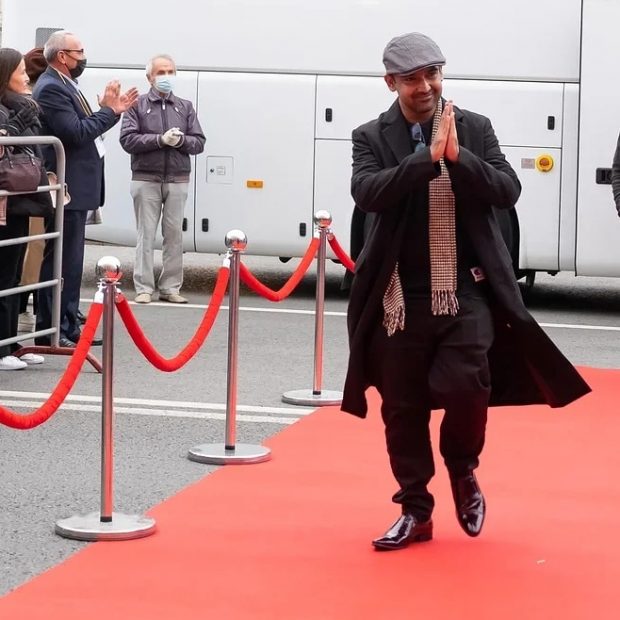
필자는 괴테-인스티튜트 파키스탄 영화인재단 등 조력자들의 도움 덕에 시나리오 집필과 제작에 집중할 수 있었다. 2020년말, 내 작품이 미국, 인도, 멕시코, 터키에서 열리는 국제영화제에 출품되며 기차는 마침내 사막을 가로질러 가기 시작했다.
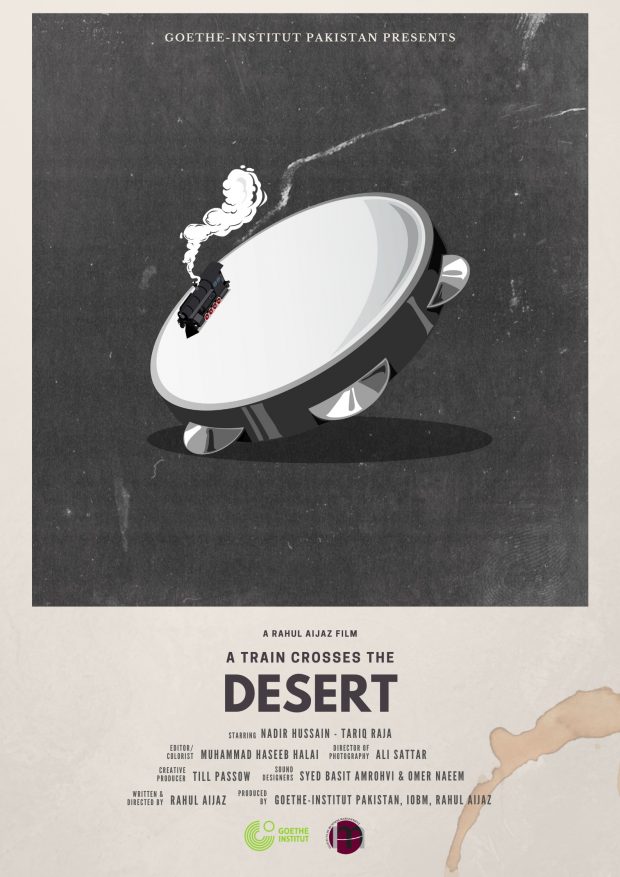
‘사막을 가로지르는 기차’는 파키스탄 역사상 최초로 국제 영화제 무대를 밟은 ‘신드어 영화’로도 알려져 있다. 필자의 작품은 인도의 자이푸르 국제영화제, 미국 뉴욕의 남아시아 국제영화제, 멕시코의 무에스트라 트란틀란테 드 시네 등 7개의 영화제를 거친 후 2021년 9월 러시아 타타르스탄에서 열린 ‘제17회 카잔 무슬림 국제영화제’에 도달했다.
지난 1년간 코로나19로 인해 발이 묶여 있었기에 카잔은 필자가 영화감독으로서 처음 참석한 국제영화제이기도 하다. 기자, 심사위원, 패널로 파키스탄과 한국에서 열렸던 영화제에 참석한 적은 있었지만 말이다. 영화감독으로 국제영화제에 참석하는 것은 필자의 오랜 버킷리스트 중 하나였다.
카자흐스탄 영화비평가협회 회장인 굴나라 아비케바가 이끄는 위원회는 수백편의 경쟁작 중 50편을 메인프로그램으로 선정했는데, 그 중 파키스탄, 그리고 신드에서 제작된 영화는 단 한편 뿐이었다. 현지 관객들은 신드어로 제작된 영화를 경험해볼 기회가 없을 것이다. 필자는 러시아에서 고향의 언어가 담긴 작품을 선보인다는 것 자체만으로도 큰 성과라 생각한다. 이는 단순히 개인의 성취가 아닌, 필자가 속해 있는 공동체 모두의 성취다.
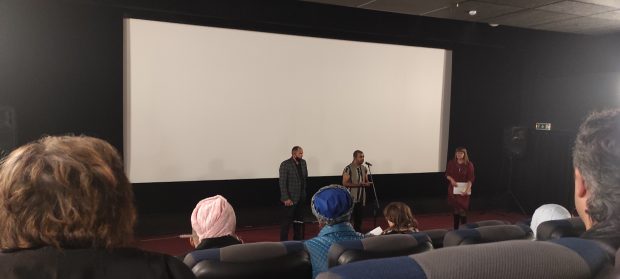
미디어와 현지 관객들은 7000년 역사의 신드 문화와 언어에 대한 관심을 표출했다. 신드를 대표해 영화제에 참석한 것은 필자이지만, 작품에 대한 크레딧은 모든 팀원들에게 있다. 작품의 주요 출연진들은 미스테리한 분위기 속에서 심장 떨리는 연기를 전했다. 최면에 걸린듯한 소리들을 만들어 낸 음향팀, 때론 어둡게 때론 황금처럼 빛나는 분위기를 연출한 영상팀 등 모든 이들의 노력이 더해져 신드 영화의 정수가 탄생할 수 있었다.
특히 신드어로 쓰여진 시를 영어로 아름답게 번역한 필자의 아버지 나시르 아이자즈와 영시를 다시금 아랍어로 번역한 아시라프 아불-야지드 달리에게 깊은 감사를 보낸다. 아시라프 아불-야지드 달리는 문인으로서 신드 문화에 진심 어린 애정을 표현해 왔다.
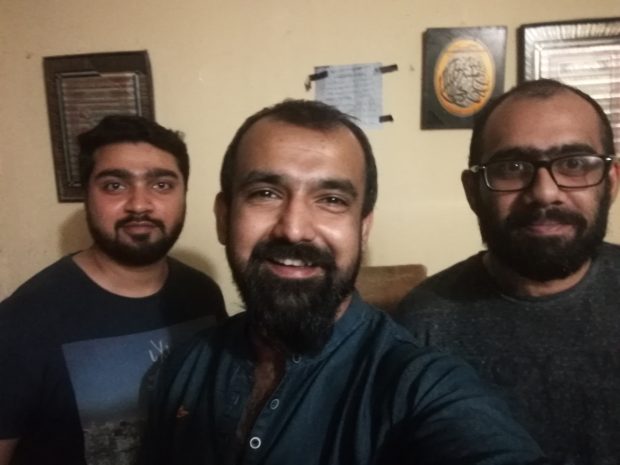
필자의 작품을 신드 영화라고 구분 지을 수 있지만, 신드 영화는 제대로 된 토대조차 마련하지 못하고 있는 것이 현실이다. 이 영화는 파키스탄 영화사에서 신드 영화라는 새로운 카테고리가 탄생하기 위한 첫 걸음이다. 1년, 10년, 20년 얼마나 걸릴지 모르겠지만 카잔에서의 성취로 인해 신드 영화는 더 많은 이들의 주목을 받게 됐다.
영화의 제목 ‘사막을 가로지르는 기차’처럼 신드 영화가 건너야 할 사막은 끝없고 광대하지만, 이 작품이 인더스강과 나일강, 볼가강 세 개의 강을 건넜던 여정은 오랫동안 회자될 것이다.<번역 이주형 기자>
A Train Crosses the river Indus, Nile and Volga
By Rahul Aijaz
A train leaves the station near the Indus River in Sindh province in Pakistan, goes through the Nile River in Egypt and finally arrives at the Volga in Kazan, Tatarstan in Russia. That’s the long journey we undertook starting in early 2020 to late 2021. It’s also the journey we never imagine we would take.
In October 2019, I got the opportunity to participate in Goethe-Institute Pakistan’s Film Talents fellowship. I was among the 15 filmmakers selected from Pakistan and Afghanistan to make films under the framework of the program.
This marked my return to filmmaking after several years of practicing journalism and film criticism across Pakistan and Korea. The train, in fact, was waiting to leave the station and it only left in February 2020 with the start of the production of our short film which was to be titled ‘A Train Crosses the Desert’. It starred Tariq Raja and Nadir Hussain in the lead, with an appearance by Arshad Shaikh.
The story of the film revolved around two brothers, one of which is terminally ill and requests the other to euthanize him. It was inspired by my late cousin Farooq’s death due to cancer in 2018. Further, the ideas of death and suicide have always stayed with me throughout my life. The premise, although, had started from a joke Farooq and I used to have between us. Being massive Game of Thrones fans, we had made a pact, jokingly of course, that we would off ourselves as soon as we watch the episode of the final Game of Thrones season.
Unfortunately, Farooq passed a year before that and I was left with survivor’s guilt and the bittersweet memories while watching the disappointing final season of the once-great show. So, the premise revolving around euthanasia was, for me, the most appropriate way to not only pay an homage to our friendship but also explore the agony one suffers when stuck in such a situation ? between life and death, not alive, not dead, barely breathing but unable to live, as well as how it affects the loved ones around.
The title ‘A Train Crosses the Desert’ came to me by pure luck. I rediscovered Egyptian poet and journalist Ashraf Aboul-Yazid’s compilation ‘The Memory of Silence’ which he had gifted to me a year prior and started reading it. Two poems ‘A Prison’ and ‘A Train Crosses the Desert’ struck me emotionally. Reading the poems, again and again, was an experience that’s hard to describe in words. As with all art, it’s best to experience the artwork than talk about it because no other words or explanations can do justice to it.
I wrote, directed and co-produced the film in collaboration with Goethe-Institute Pakistan and Institute of Business Management (IoBM) and by the end of 2020, the train had finally left the station when it started getting accepted into film festivals in the US, India, Mexico and Turkey.
It was then we realized it was, to the best of our knowledge, the first Sindhi-language film in the history of Pakistan to make it to international film festivals. After seven festivals under our belt, including Jaipur International Film Festival (India), South Asian International Film Festival (NYC, USA), Muestra Itinerante de Cine (Mexico) and others, we finally came to the 17th Kazan International Muslim Film Festival in Tatarstan, Russia in September 2021.
I consider showcasing a Sindhi film in Russia an accomplishment as I don’t believe the Russian and Tatar audience would have ever experienced a film in this language. It’s not just a personal accomplishment but rather that for an entire people.
The films were selected for the main program by a commission led by Gulnara Abikeeva, Kazakh film critic and the president of the Association of Film Critics of Kazakhstan. Among 50 films selected for competition from among hundreds, only one was from Pakistan, and that too was in Sindhi. This is an unforgettable honor.
Kazan was also special because it was the first film festival I attended as a filmmaker (thanks to the pandemic, I had not been able to attend the festivals on-site throughout the year). Previously, I had only been to film festivals in Pakistan and Korea as a journalist, jury member or a panelist. Getting to be on the other side of it was a bucket list item that I finally got to check off.
In Kazan, the reception to the film was wonderful. I sensed a curiosity about this wonderful 7000-year-old Sindhi culture and language from Tatar audience as well as media. While my presence and words served as representatives of Sindh, I credit the film’s team – from crew to the cast and the poet Dali (whose English-translated Arabic poetry was further beautifully translated into Sindhi by my father Nasir Aijaz) ? who truly represented the culture.
It was through the enigmatic and heartbreaking performances delivered by Tariq Raja and Nadir Hussain, as well as Arshad Shaikh; the hypnotic sound design by Omer Naeem and Syed Basit Amrohvi, and the dark, drenched-in-gold visuals by Ali Sattar that Russia truly got introduced to Sindhi cinema.
Now I say Sindhi cinema, but it really doesn’t exist on any scale. Hence, the film becomes even more important for me, as I intended it to be the first step, a launchpad which we can use to set the foundations of what may possibly become Sindhi cinema in Pakistan. It may take a year or a decade or two, who knows, but the platform Kazan International Film Festival provided brought more eyes to our Sindhi short film.
And while the film is called ‘A Train Crosses the Desert’, and the desert of Sindhi cinema we have to cross is vast and endless, it will for long be associated with the three rivers it reached ? from Indus (Sindhu) to the Nile and finally to Volga. And as the train crosses more deserts and rivers, the songs of Sindhu and the Nile, and the songs of the Volga shall keep echoing throughout the journey.





